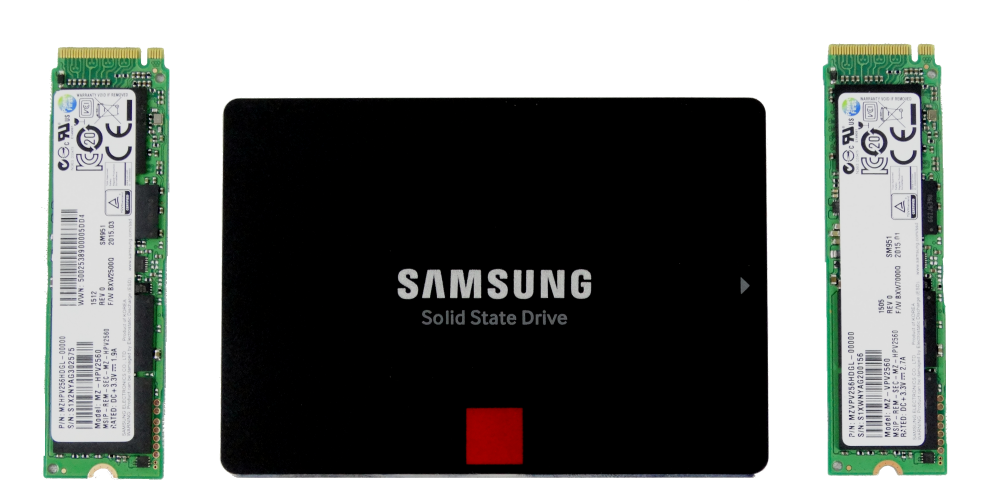Early Verdict
If you can use it and can afford it, the Samsung SM951-NVMe could be the fastest SSD released in 2015. The low latency makes this drive very fast under normal desktop use and the high throughput delivers your hefty files faster than ever.
Pros
- +
The highest performing m.2 SSD in existence. Enterprise SSD technology and performance at client prices.
Cons
- -
Not available yet. Weak compatibility until motherboard makers release updates. High price compared to SATA products.
Why you can trust Tom's Hardware
Indroduction
Several readers commented on the lack of 2.5" SATA drives in our SM951 coverage. Comparing SATA to PCIe-based storage isn't apples-to-apples. I tend to make comparisons based on interface technology or price tag. Samsung's 850 Pro is a very fast 2.5" SATA SSD, but it's not in the same league as the company's SM951.
Don't believe me? In this round-up of Samsung products, I'm pitting the 850 Pro 256GB against Samsung's SM951 AHCI 256GB. I'll also introduce you to the SM951-NVMe 256GB, which should be available in June.
At this time, only the 256GB model is available from Samsung's SM951-NVMe product family. Some sites published reviews of the SM951-NVMe already using drives harvested from Intel NUCs. But we've learned that Intel's samples didn't ship with final releases firmware. As a result, we shelved our early review using one of those SSDs borrowed from a NUC.
Intel wasn't the only company to receive early SM951-NVMe SSDs. At least one distributor had products in-hand, ready to ship before Samsung asked for them back to update the firmware. If that firmware wasn't required, the SM951-NVMe would already be on sale.
Get Tom's Hardware's best news and in-depth reviews, straight to your inbox.

Chris Ramseyer was a senior contributing editor for Tom's Hardware. He tested and reviewed consumer storage.
-
Amdlova hpv-2560 is rated 1.9A and the another one VPV-2560 is 2.7A Maybe you guys need test the power consumption.Reply -
atheus I find the preamble about comparing these M.2 drives to regular SATA drives a little odd. When SSD's first came out, of course they were compared to HDD's because that was precisely the question of the moment — how much more performance can one expect from the more expensive SSD's. With this new generation of SSD's, it's only natural to want to see them compared to the old, cheaper stuff. How else are we going to evaluate whether it's worth it to upgrade?Reply
If it only resulted in an extra 10% on a real-world test, then it wouldn't make any sense to spend double or more on a NVMe drive. With these solid numbers, though, the massive performance leap will be well worth the cost for those who can afford it. -
TechyInAZ Looks great! NVMe is defiantly the ideal solution for users that need high speed/responsive storage.Reply
I wish you guys would of compared this NVMe SSD to the Intel NVMe SSD that just came out. -
CRamseyer The Intel SSD 750 and the Samsung SM951-NVMe will show up side by side soon in another review.Reply -
CRamseyer Test systems: http://www.tomshardware.com/reviews/how-we-test-storage,4058.htmlReply
All three drives were tested in the PCIe test system. They are the only systems setup for testing queue depths beyond 32. -
dwnelson I'm sad the real world chart is misleading. If you show seconds instead of MB/s you'd see it doesn't justify the cost. Sad.Reply -
BoredErica ReplyThe Intel SSD 750 and the Samsung SM951-NVMe will show up side by side soon in another review.
That is a natural comparison and I look forward to reading it.
